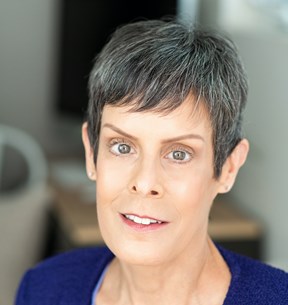Meeting
2021 ASCO Annual Meeting

David Geffen School of Medicine at UCLA, Los Angeles, CA
Deanna J. Attai , Matthew S. Katz , Elani Streja , Jui-Ting Hsiung , Beverly A Zavaleta , Larissa Nekhlyudov
Background: Nearly 17 million cancer survivors live in the United States. Workforce shortages are projected to diminish the number of available medical oncologists (MOs) to care for newly diagnosed patients with cancer and for the growing number of cancer survivors. Models of survivorship care include oncologist-led, primary care-led, and shared care approaches. Recent proposals recommend a risk-stratified approach to care, guided by individual and cancer-specific factors, but there is little evidence regarding patient preferences for non-oncologist survivorship care. Methods: We developed a survey in partnership with patient advocates. The primary endpoints were patient-reported comfort with survivorship care by a primary care provider (PCP) or in a dedicated survivorship clinic. We distributed the survey to online, cancer-specific patient communities from June to August 2020. Logistic regression analyses were adjusted for patient age, race and ethnicity, insurance, and cancer type and stage. Results: Of 1166 responses, 975 surveys were complete and available for analysis. Respondents were primarily women (91%), white (92%), and US residents (73%); 78% had a college or graduate degree. Two-thirds had private insurance. Thirty-six different cancer types were reported; 61% of respondents had breast cancer, and 25% were treated for more than one type of cancer. Most respondents (83%) had nonmetastatic disease, 74% reported experiencing late effects of cancer therapy, and almost all (93%) had a PCP. Only 21% of respondents were comfortable seeing a PCP (versus MO) for survivorship care, including cancer follow-up, side effect management, and monitoring for recurrence or progression. About half (55%) were comfortable with follow-up in a survivorship clinic instead of with their MO. Multivariable analyses showed no significant associations between age, race or ethnicity, insurance, cancer type, or stage at diagnosis and comfort with follow-up care from a PCP or in a survivorship clinic. In analyses restricted to the 439 respondents with a history of early-stage breast cancer, the 239 (54%) who were within 1 to 5 years of diagnosis were less comfortable with PCP versus MO follow-up, compared with the 52 (12%) who were > 15 years from diagnosis (OR 0.40; 95% CI 0.20–0.75; p= 0.004). In this sub-analysis, time from diagnosis was not associated with comfort being seen in a survivorship clinic. Conclusions: In our study, most patients with a history of cancer were not comfortable receiving follow-up care from their PCP. It is often recommended that survivors of early-stage breast cancer transition to primary care for follow-up and surveillance, but our study revealed comfort with this approach only many years after diagnosis. While both PCP survivorship training and patient confidence in PCP follow up is needed, preferences of cancer survivors should be considered in designing new models of survivorship care.
Disclaimer
This material on this page is ©2024 American Society of Clinical Oncology, all rights reserved. Licensing available upon request. For more information, please contact licensing@asco.org
2021 ASCO Annual Meeting
Poster Session
Symptoms and Survivorship
Symptom Science and Palliative Care
Late and Long-Term Adverse Effects
J Clin Oncol 39, 2021 (suppl 15; abstr 12064)
10.1200/JCO.2021.39.15_suppl.12064
12064
Online Only
Abstract Disclosures
2023 ASCO Quality Care Symposium
First Author: Emily H. Douglas
2023 ASCO Annual Meeting
First Author: Renee Gilbert
2023 ASCO Quality Care Symposium
First Author: Laura LaNiel Tenner
2023 ASCO Annual Meeting
First Author: Madeleine Uelk